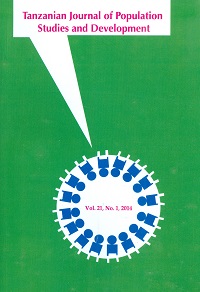Local Collaboration and Influence in Natural Resource Management in Amani Nature Reserve in Tanzania: A Cross-Sectional Social Network Analysis
Abstract
Social network analysis (SNA) in natural resource management has received much
attention in recent literature, where different characteristics of social networks have
been revealed to serve various functions to demonstrate effective collaboration in the
governance of natural resources. In this paper, we consider a Bayesian model selection
approach for exponential random graph models (ERGMs), which is based on the
posterior distribution. We use a combination of Bayesian and MCMC techniques,
which circumvents the need to calculate the normalising constants. This method is
illustrated using a cross-sectional network of five types of relational ties and influence
as an actor ' s attribute in the context of local collaboration practices of natural resource
management in two rural communities of Amani Nature Reserve in Tanzania. Based
on the positive values of parameters related to network structural characteristics in
the competing models, our results provide an overall understanding of actors
perceived as influential, and the contributions of their attributes and network
structures in explaining influence nominations.
Keywords: actor attributes, Bayesian model selection, Bayes factors, exponential random
graph models, local collaborative practices of natural resource management, network ties,
social networks


